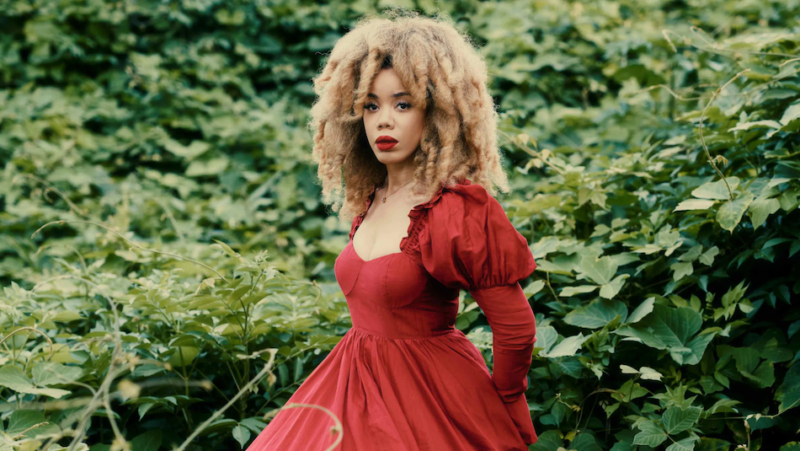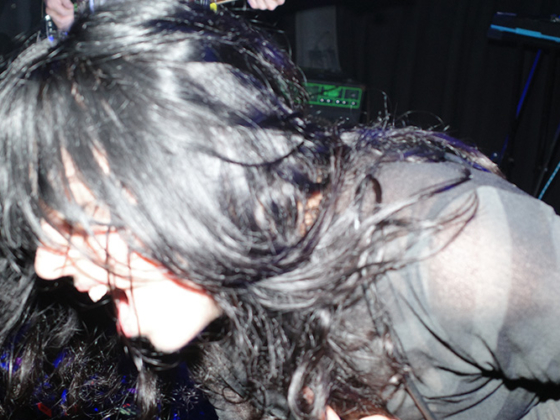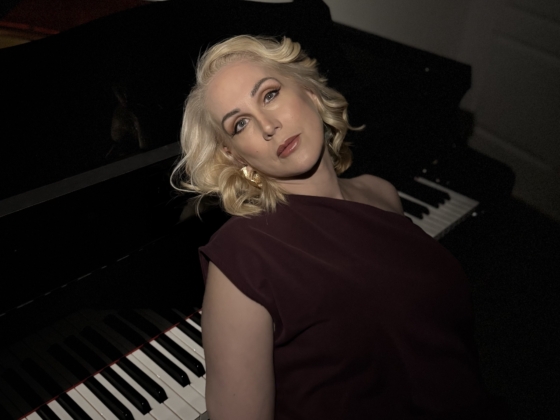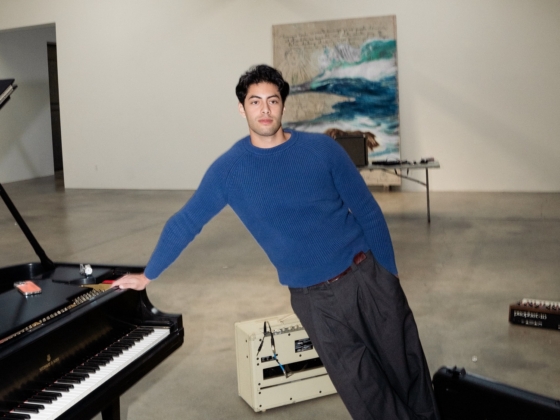There’s something refreshing about an artist who refuses to be misunderstood. Kirby’s second studio album, Miss Black America, doesn’t leave much to decode but that’s exactly the point. She’s spoon-feeding listeners the meaning of this body of work because the message is meant to be front and center: this is a record about Black identity, Southern legacy, and the weight of pursuing your dreams despite the odds.
Kirby, the Southhaven, Mississippi–born and Memphis–raised singer-songwriter who calls herself the “granddaughter of soul,” has long been a quiet force behind modern pop and R&B. Her pen has powered hits for Rihanna, Kanye West, Paul McCartney, Beyoncé, Ariana Grande, and Childish Gambino. But long before that, she was a hopeful newcomer posting her music online. After leaving Berklee College of Music to kick-start her career, in 2012 she challenged herself to post an original song every day for 275 days on YouTube. That experiment caught the attention of Roc Nation co-founder Jay Brown, who signed her on day 302.
A decade later, the artist who once worked relentlessly for recognition now attracts millions with her voice. Today, Miss Black America has racked up over 2 million streams and counting, making Kirby’s voice a grounding presence in R&B’s most intentional renaissance.
The album opens with “When You Coming Home,” a sonic invocation that feels sacred and ancestral. Gospel harmonies from Kirby and her background singers weave through the rhythmic tambourine, setting a tone that’s reverent but restless. Kirby’s vocals rise and fall, quivering with a Southern preacher’s conviction:
“Once upon a time when the kings and the queens picked cotton /
Where’s your ancestors? Where’s your momma? Where’s your daddy from?”
The lyrics are both a question and a calling. And her repetition of “Mississippi, we miss you” lands like a lament and a reclamation.
The juxtaposition continues on “Bettadaze.” The lyrical storytelling is a self-portrait that’s equal parts confessional and affirmation. The production balances live instrumentation (blaring horn, snare kicks, a gospel choir in the pocket) with the warmth of soul. Kirby’s vocal phrasing is deeply human. “I just wanna make the ancestors proud,” she sings — not as cliché, but as ethos.
The title track, “Miss Black America,” stands as the album’s centerpiece. Framed by the haunting voice of activist Fannie Lou Hamer, the song bridges eras of struggle. Kirby’s writing shines here, as she shares biting political commentary:
God Bless America
You wanna free us pay them teachers like they senators
I pray my brother see the king in his people
I pray my sister see the queen in her people
Yeah yeah yeah
I still pay my taxes yet they pay us minimum wage
Pulled up with that Ya Ya pulled the shotta ain't no case
Cuzo we ain't gonna rest until them folks is caged
Big K.R.I.T. 's verse grounds the track in Southern vernacular pride and linguistic ownership. Together, they show a deep respect for the language of the South, particularly from Black Americans.
Across Miss Black America, Kirby threads tension. “The Man” and “Na$ty” reckon with labor, gender, and the illusion of meritocracy. Yet she always finds space for joy. “Thick N Country,” featuring Akeem Ali, is a funky celebration of Southern womanhood. It's playful, bass-driven, and body-positive without pandering or being overly exploitative. “Jump the Broom” honors the Black American marital tradition with a slower, more casual instrumentation. An acoustic guitar and organ round out the sound, making this history lesson an easy listen. By the time “My People” closes the record, Kirby has built a community. It’s a track that belongs at a family reunion and insists joy itself is resistance.
Musically, Miss Black America is polished and palpably human. The arrangements are organic and full, but make space for imperfections like deep breaths, handclaps, and laughter. However, these additions ground the album empirically and culturally. There’s a throughline of Southern soul revivalism, but Kirby modernizes it through syncopated phrasing and vocal layering. You know an artist has risen to the moment when all five senses are activated, and that’s what Kirby’s done for her audience.
To critique this album solely sonically would be an injustice. The message behind it — from the arresting lyrics to the visuals — is just as vital to the experience as the music itself. In conversation with NPR, she said, “I can never deny who I am from this project… I literally have the songs to remind me.” Miss Black America is exactly that, an act of remembrance and of reclamation. It’s both a love letter and a ledger of what’s owed to the South — a place, a people, and a sound that built America from the ground up.











